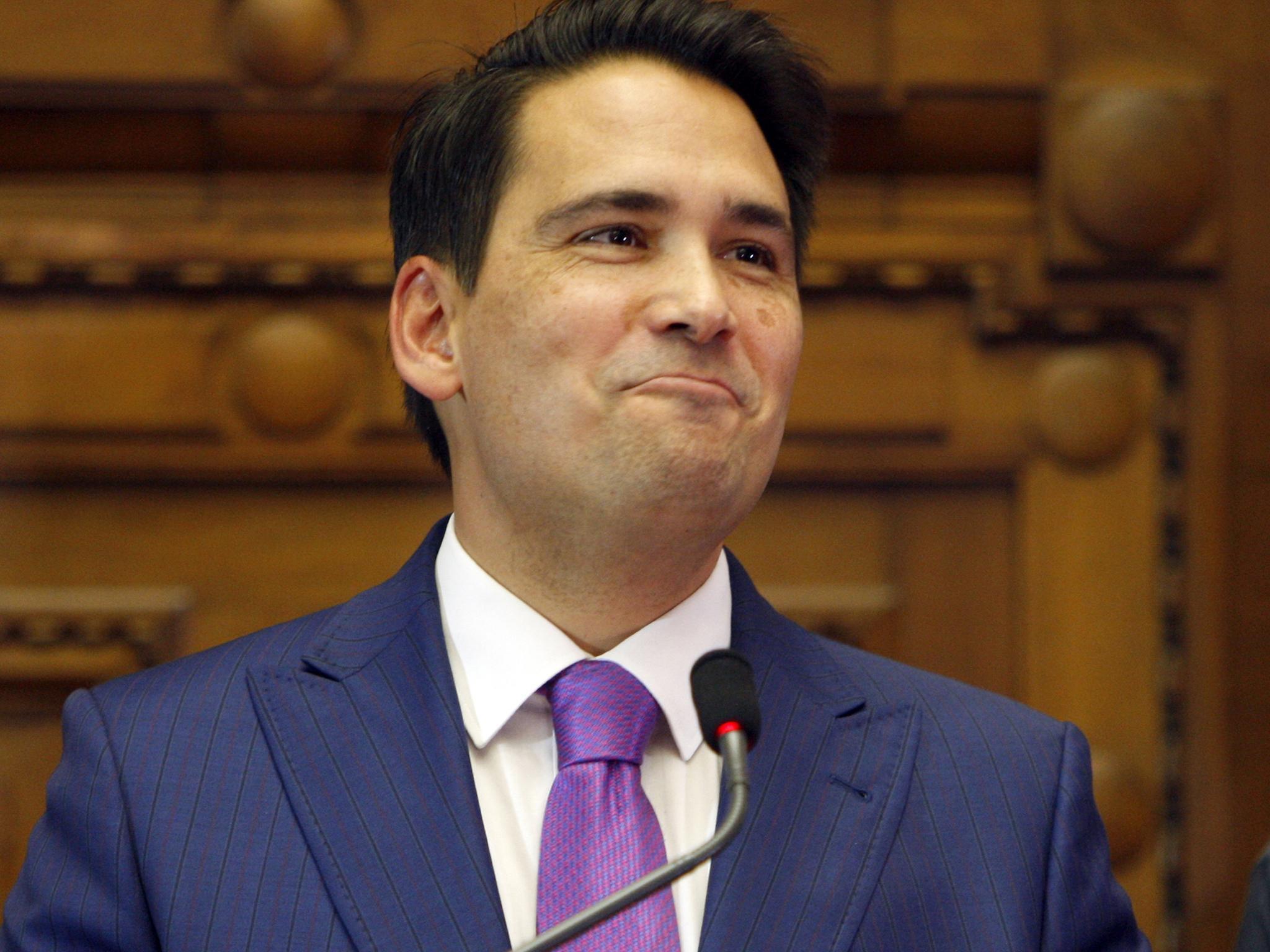New Zealand’s main conservative party elects first Maori leader
'This is an enormous privilege and I want to thank my colleagues for giving me the opportunity to lead a strong, united and focused opposition with the ideas and talent to continue to take New Zealand forward'

Your support helps us to tell the story
From reproductive rights to climate change to Big Tech, The Independent is on the ground when the story is developing. Whether it's investigating the financials of Elon Musk's pro-Trump PAC or producing our latest documentary, 'The A Word', which shines a light on the American women fighting for reproductive rights, we know how important it is to parse out the facts from the messaging.
At such a critical moment in US history, we need reporters on the ground. Your donation allows us to keep sending journalists to speak to both sides of the story.
The Independent is trusted by Americans across the entire political spectrum. And unlike many other quality news outlets, we choose not to lock Americans out of our reporting and analysis with paywalls. We believe quality journalism should be available to everyone, paid for by those who can afford it.
Your support makes all the difference.Politicians from New Zealand’s opposition party have chosen Simon Bridges as the first indigenous Maori leader in the history of the conservative National Party.
Mr Bridges, 41, campaigned on a platform of generational change after former prime minister Bill English, 56, announced his resignation as leader two weeks ago. Mr English will leave parliament in March. Paula Bennett, who is also part-Maori, will remain as deputy leader.
After losing last year’s general election to the centre-left Labour Party, the National Party received calls to change its leadership.
Though Mr Bridges' appointment represents a landmark for the party, he is far from the first New Zealand politician of Maori heritage. In 1905, Apirana Turupa Ngata, who is seen by many as the country’s most prominent Maori MP, was elected to parliament on behalf of the Liberal party.
Mr Bridges, who is the son of a Baptist minister, was first elected to parliament in 2008 and had held several ministerial portfolios including labour, energy, economic development and transport during his party’s nine years in power from November 2008 to October 2017.
In a statement supplied by his party before a news conference, he said: “This is an enormous privilege and I want to thank my colleagues for giving me the opportunity to lead a strong, united and focused opposition with the ideas and talent to continue to take New Zealand forward.”
The selection of Mr Bridges could help blunt criticism that Jacinda Ardern, 37, was better able to connect with a younger generation than Mr English. Mr Bridges and Ms Ardern have faced off before, when they appeared on breakfast television together as “young guns” representing their respective parties. He said he wants to appeal to a “broad cross-range” of New Zealanders because that’s what his party represents.
“I’m really excited about the opportunity I’ve got ahead,” Mr Bridges said. “I hope Maori are proud of me.”
The National Party was in power for nine years before the election in September, when it won the most votes of any single party. But the liberal Labour Party was able to forge an alliance with two smaller parties and form a government under Prime Minister Ardern.
Opinion polls indicate the popularity of Ms Ardern and the Labour Party has risen since she was elected and Mr Bridges said the National Party would face the next election as underdogs.
Ms Ardern has moved quickly to fulfill campaign pledges such as banning foreign speculators from buying homes, increasing spending on education and making the nation carbon neutral by 2050.
Her announcement last month that she was pregnant attracted intense interest around the world. She is due to have her first child in June, when she plans to take six weeks’ leave.
Mr Bridges is known for his conservative views on issues such as euthanasia and gay marriage and voted against same-sex marriage in 2013. Although, he has since said he’d probably change his vote, seeing as the law has worked.
He was voted as party leader in the second round of a secret ballot vote by his caucus colleagues on Tuesday.
Additional reporting by AP
Join our commenting forum
Join thought-provoking conversations, follow other Independent readers and see their replies
Comments